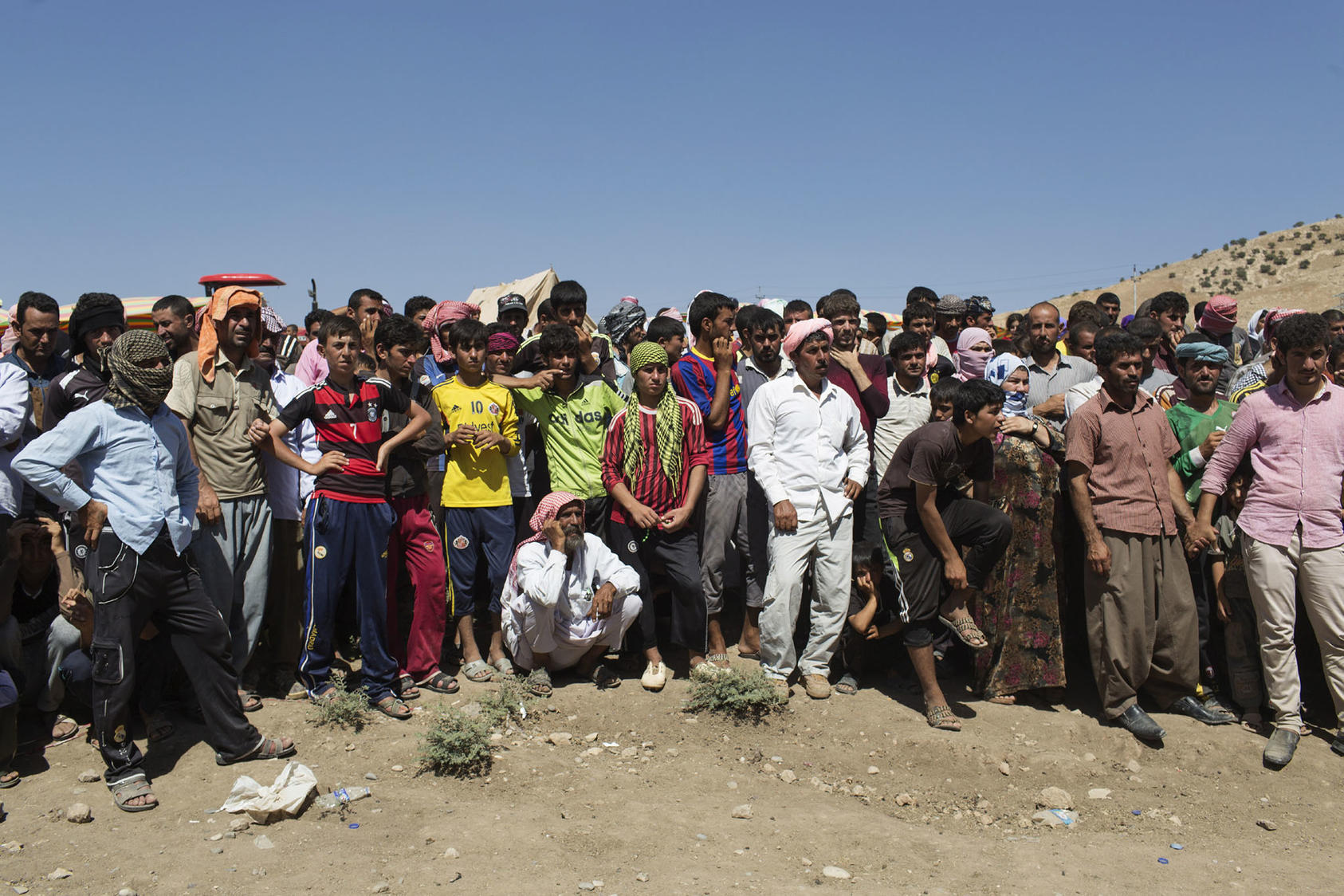It is critical for countries interested in the wellbeing of Iraq and its minorities to redouble their efforts to ensure their survival.
During the past few months I have spent working with religious minorities in Iraq, I have realized that these communities and Iraq’s anti-government protesters seek the same outcome: a democratic, safe, and pluralistic country.

But now the coronavirus pandemic is threatening the achievement of this shared goal, and could push Iraq over the edge, and its minorities into extinction, particularly as they already struggle to shield themselves from chaos due to poor, ineffective representation in both the government sector and local security forces.
Iraq’s interlocking crises—collapsed oil revenues, increased tensions between the United States and Iran, and the failure of political elites in Baghdad to address protesters’ concerns—have left state institutions overstretched.
The COVID-19 pandemic could not have come at a worse time as these crises draw attention away both from handling the outbreak and rebuilding Iraq’s ill-prepared healthcare system.
As a Reuters report underscored, Iraq’s healthcare system has a shortage of drugs and doctors—who are fleeing by the thousands—leaving Iraq with only eight doctors per 10,000 people. In comparison, nearby Lebanon has 23 doctors per 10,000 people.
Religious Minorities Are Most Vulnerable
The consequences of Iraq’s dire situation will fall heaviest on its minorities. Since 2003, they have been shut out of government decision-making processes, both in Baghdad and on the provincial level.
Their exclusion contributed significantly to the government’s failure to protect predominantly minority areas, and ultimately paved the way for the ISIS invasion, which uprooted these communities from their ancient homelands.
Iraq’s religious minorities have endured mass murder, kidnapping, and sexual violence—all part of a concerted effort by ISIS to enact the wholesale destruction of their livelihoods, homes, and existence.
Christians in Iraq, once estimated at 1.4 million in 1987, have been forced to flee due to persecutions and attacks against them, driving the population down to less than 200,000.
Christians, Yazidis, and Kaka’is are still struggling to reclaim their way of life because of rapidly declining demography, institutionalized discrimination, and conflict over their ancestral homelands, especially the northwestern region of Nineveh.
Coronavirus in Iraq will only further complicate the sustainability of fragile minority groups.
Today an estimated 787,367 internally displaced persons (IDPs) are registered in Kurdistan and nearly 40 percent of them are Yazidi, Christian or another minority groups.
Minorities are particularly vulnerable to the coronavirus outbreak because IDP populations live in camps where social distancing is not an option, proper sanitation measures are not possible, and the Ninewa province where many minorities have returned is still in a state of ruins.
Another wave of death on these communities could drive them out for good. Additionally, instability could divert Iraq’s attention from the ongoing fight against ISIS, leading to a resurgence that threatens the region, or facilitate Iraq’s ongoing submission into Iran’s sphere of influence and implementation of its regional goals—both of which could wreak havoc on minorities.
The determining factors of saving these communities will be the efforts by the Iraqi government, and international community, to preserve Iraqi minorities.
What can the Iraqi government do to protect minorities? Read the rest of this article on Al Arabiya, where it was originally published.
Yousif Kalian is a program specialist at the U.S. Institute of Peace where he works on social cohesion and community reconciliation in Iraq.